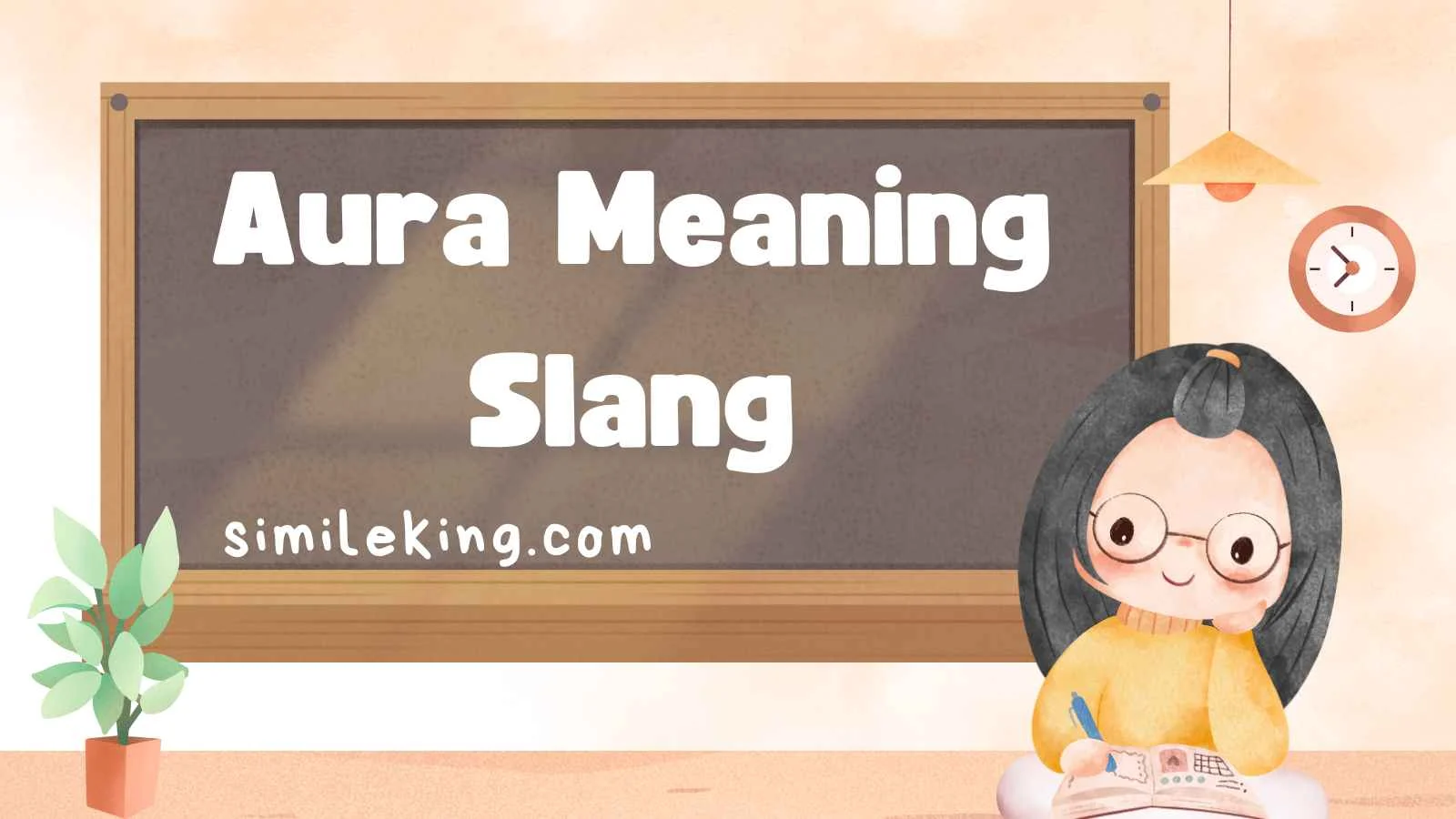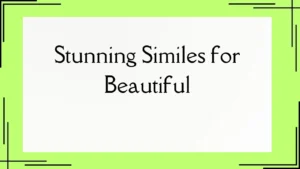Language is alive—it grows, shifts, and transforms with every generation.
Slang, in particular, is one of the fastest-moving aspects of language because it reflects culture, identity, and the evolving ways people connect.
One slang word that has gained immense traction both online and offline is “aura.”
Originally a spiritual or scientific term referring to an invisible energy field surrounding a person or object, “aura” has taken on new layers of meaning in 2025 slang.
On social media platforms like TikTok, Instagram, and X (formerly Twitter), the word is no longer confined to mysticism or psychology—it’s now shorthand for describing someone’s vibe, energy, presence, or even their influence.
This article breaks down the modern slang meaning of aura, explores how it’s used in different contexts, provides professional and casual alternatives, and offers practical examples to help you use it naturally in conversations, text messages, or even workplace communication.
By the end, you’ll not only understand what aura means in slang (2025 edition) but also know exactly when, where, and how to use it effectively.
What Does “Aura” Mean in Slang?
In slang, aura means vibe, presence, or the energy that someone gives off. It’s less about literal spirituality and more about how a person is perceived.
- Saying “She has a confident aura” means she radiates confidence.
- Saying “That outfit has a boss aura” means the style feels powerful and commanding.
- Saying “His aura is chill” suggests his presence is calm and easygoing.
In short, aura in slang is about perception—it’s how you interpret the “energy” of someone or something.
Why Did “Aura” Become Popular Slang?
The rise of aura slang comes from a mix of cultural, spiritual, and digital influences:
- Spirituality going mainstream – Wellness culture, meditation apps, and astrology made concepts like “vibes” and “energy” part of daily speech.
- Social media aesthetics – TikTok trends like “main character energy” or “soft girl aura” boosted its slang use.
- Gen Z creativity – Younger generations love metaphorical language that feels unique and expressive. “Aura” sounds fresh and deeper than simply saying “vibe.”
- Influence culture – Aura is often used to describe celebrities, influencers, and leaders, framing their presence as magnetic or iconic.
Formal vs. Casual Uses of “Aura”
While aura is usually informal, you can adjust how you use it depending on context.
1. Casual Slang Use
- “Her aura is unmatched.”
- “That playlist gives cozy aura vibes.”
- “Bro, his aura screams confidence.”
Here, aura is playful and expressive—perfect for conversations with friends or online.
2. Professional or Polite Use
- “She carries an aura of leadership in meetings.”
- “His calm aura helps ease workplace stress.”
- “The company brand projects an aura of innovation.”
This usage leans toward metaphorical professionalism, making it suitable for work, essays, or public speaking.
Alternatives to “Aura” in Different Tones
Sometimes you may want to express the idea of aura without using the word itself. Here are polished alternatives:
Polite/Professional Alternatives
- Presence – “She has a commanding presence.”
- Demeanor – “His friendly demeanor makes him approachable.”
- Air – “There’s an air of elegance about her.”
- Charisma – “His charisma attracts everyone in the room.”
Casual Alternatives
- Vibe – “That place gives off cozy vibes.”
- Energy – “Her energy is contagious.”
- Mood – “This outfit is a whole mood.”
- Flow – “He’s got a confident flow.”
Unique/Creative Alternatives
- Glow – “She has that main-character glow.”
- Signal – “He’s giving off strong leader signals.”
- Radiance – “Her radiance lights up the room.”
10 Examples of “Aura” in Real Conversations
Here are 2025-ready examples that show how aura slang naturally works in text, conversation, or writing:
- Casual Texting:
“You’ve got such a fun aura tonight, love hanging out with you.” - Complimenting Style:
“That jacket gives you a rockstar aura.” - Describing Someone’s Personality:
“Her aura is calm but powerful—she doesn’t need to say much to be noticed.” - Workplace Setting:
“He brings an aura of professionalism to every project.” - Talking About Celebrities:
“Zendaya just has that effortless aura on the red carpet.” - Friend Group Chat:
“Bro, your gaming aura is undefeated 😂.” - Social Media Caption:
“Sunday brunch with the best aura ✨.” - Romantic Tone:
“I’m drawn to you, it’s like your aura pulls me in.” - Pop Culture Reference:
“That movie has an aura of mystery that stays with you.” - Philosophical Reflection:
“Sometimes, your aura says more than your words ever could.”
Nuances of Tone: How to Choose the Right Expression
The meaning of “aura” can shift depending on how you frame it. Here’s a quick breakdown:
- Playful tone: Aura = vibe (fun, casual, trendy).
- Romantic tone: Aura = attraction, magnetism, emotional pull.
- Professional tone: Aura = presence, leadership, influence.
- Creative tone: Aura = energy, artistic expression, uniqueness.
When choosing alternatives, always match the audience + context. For instance, in a professional setting, “aura of confidence” sounds polished, while in texting with friends, “your aura is glowing” feels casual and warm.
Common Misconceptions About “Aura” in Slang
- It’s not always spiritual. – In slang, aura doesn’t require belief in energy fields. It’s just a metaphor for presence.
- It’s not just positive. – Someone can have a “toxic aura” or a “dark aura,” meaning their energy feels negative.
- It’s not limited to people. – Music, clothing, events, even places can have an aura.
- It’s not formal by default. – It works best in casual speech unless carefully framed in business or academic contexts.
Aura in Digital Culture (2025 Update)
In 2025, aura slang is deeply tied to digital trends:
- TikTok: Creators use hashtags like #GoodAura, #AuraCheck, or #MainCharacterAura to highlight fashion, moods, or transformations.
- Instagram: Captions like “Golden aura today 🌞” trend under lifestyle and self-care posts.
- AI filters: New AR filters label photos with “aura colors,” blending visual aesthetics with slang.
- Music & Fashion: Artists and designers brand their work as carrying an “aura,” associating it with uniqueness and luxury.
This digital evolution ensures aura stays relevant far beyond its mystical origins.
Conclusion
In 2025 slang, aura has expanded into a versatile way of describing vibes, energy, and presence. It can be flattering, descriptive, or even critical, depending on tone.
Whether you’re complimenting a friend’s outfit (“That’s giving boss aura”), describing a leader in the workplace.
(“He carries an aura of wisdom”), or reflecting on self-image (“My aura feels lighter these days”), the word has become a universal shorthand for how people and things feel.
Understanding aura in slang isn’t just about knowing a definition—it’s about recognizing how tone, context, and creativity shape its meaning.
Use it thoughtfully, and it can elevate your communication both online and offline.





